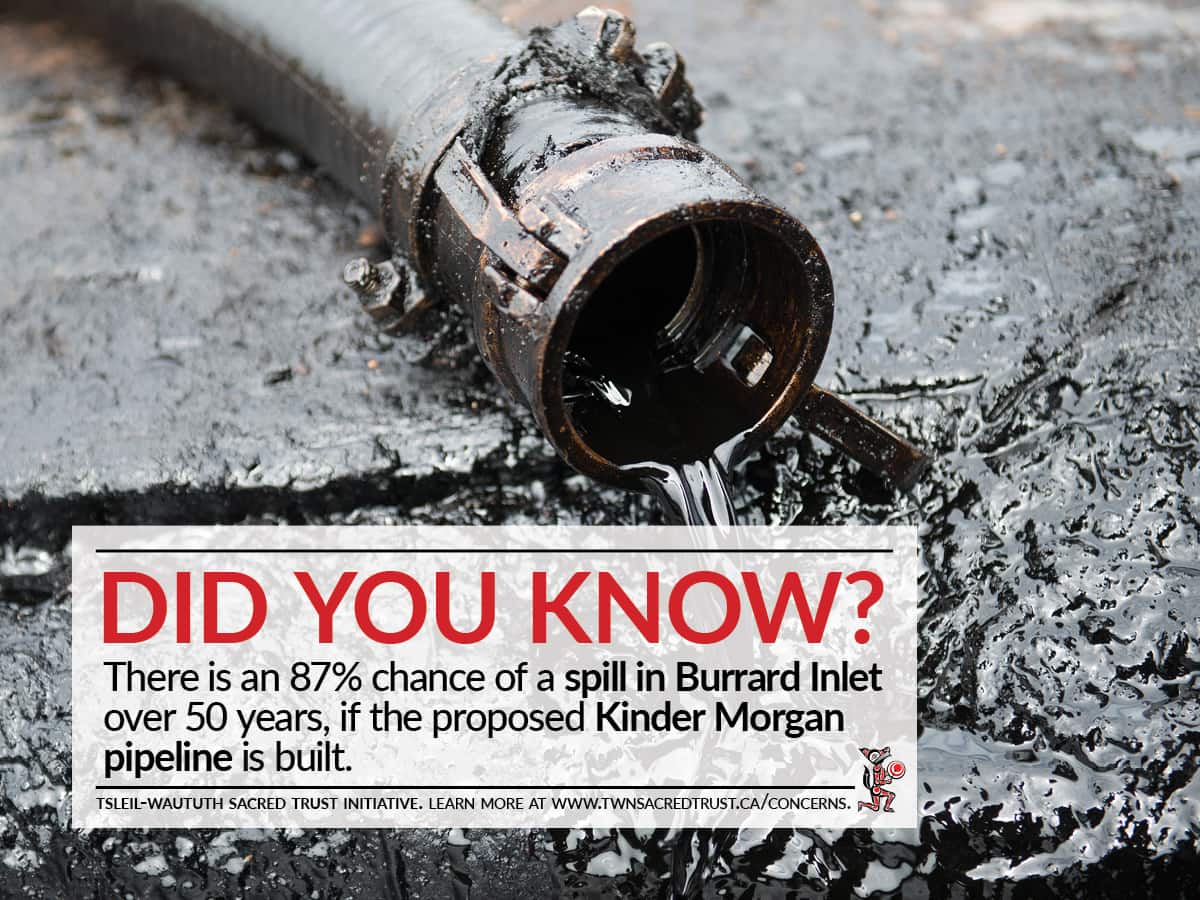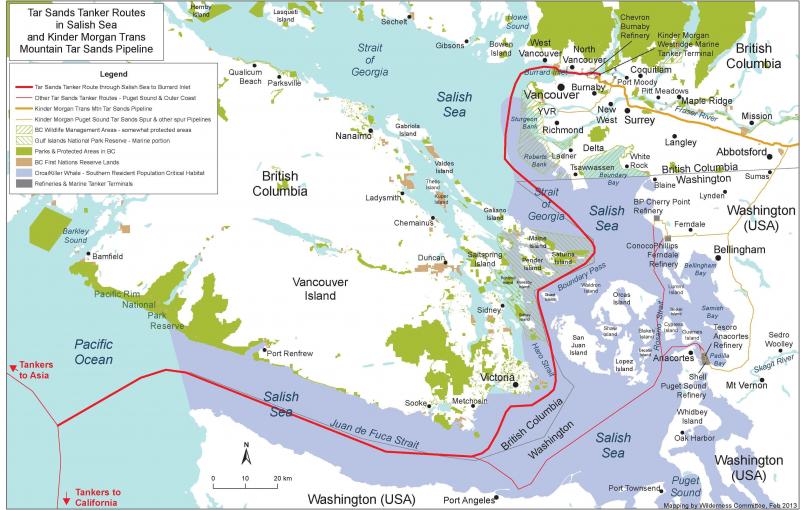How likely is an oil spill if the proposed Trans Mountain pipeline goes ahead?
This page builds on information from a Tsleil-Waututh Nation report that assesses the proposed Trans Mountain pipeline and tanker project. You can read and download the full report here.
Based on the Kinder Morgan’s past record, an oil spill is likely to happen at least once in four years, and the proposed pipeline will make oil spills more likely.
- If the proposed pipeline is implemented, the likelihood of a spill in the Burrard Inlet over fifty years lies at 79-87% for any size spill (Trans Mountain Assessment Report, p. 66)
- Smaller spills (1,000 barrels) are very likely
- There is a 37% chance of a larger spill (10,000 barrels) over fifty years
- There is a 29% likelihood of a worst-case spill (100,000 barrels) over fifty years
- The proposed pipeline will increase tanker traffic seven times over, and increase the risk of spills in the vulnerable Burrard Inlet even further (Trans Mountain Assessment Report, p. 6)
- The figures on tanker and terminal oil provided by Kinder Morgan, in its own risk assessment, are unreliable and inconsistent with scientific research (Trans Mountain Assessment Report, p. 69).
- Dr. Jerry Galt from the National Oceanic and Atmospheric Administration states that Kinder Morgan’s own risk assessment “underestimated the extent and duration of spills in the Burrard Inlet because it did not [consider] stranded oil to refloat” (Assessment Report, p. 69).
- The likelihood of a spill is worsened by the fact that tankers must pass through the Second Narrows Movement Restricted Area of the Burrard Inlet. This means that, due to their weight and size, tankers will remain in the Inlet longer because they will have to wait until daylight high tide before being escorted back by a tug (CredBC).
- “There are no fail-safe methods to transport oil or diluted bitumen over water” (CredBC).
- “While the technology of tankers has improved, there are still people at the heart of tanker operation and human error is inevitable” (CredBC).
The Tsleil-Waututh Nation cannot accept the increased risks, effects, and consequences of even another small incident (Trans Mountain Assessment Report, p. 3)
Real climate leadership means stopping the proposed Trans Mountain pipeline. Click here to find out how.
What Else Can I Do to Help?
Spread the Word
When people see other people they know or can relate to expressing their views, it can make a big difference.






